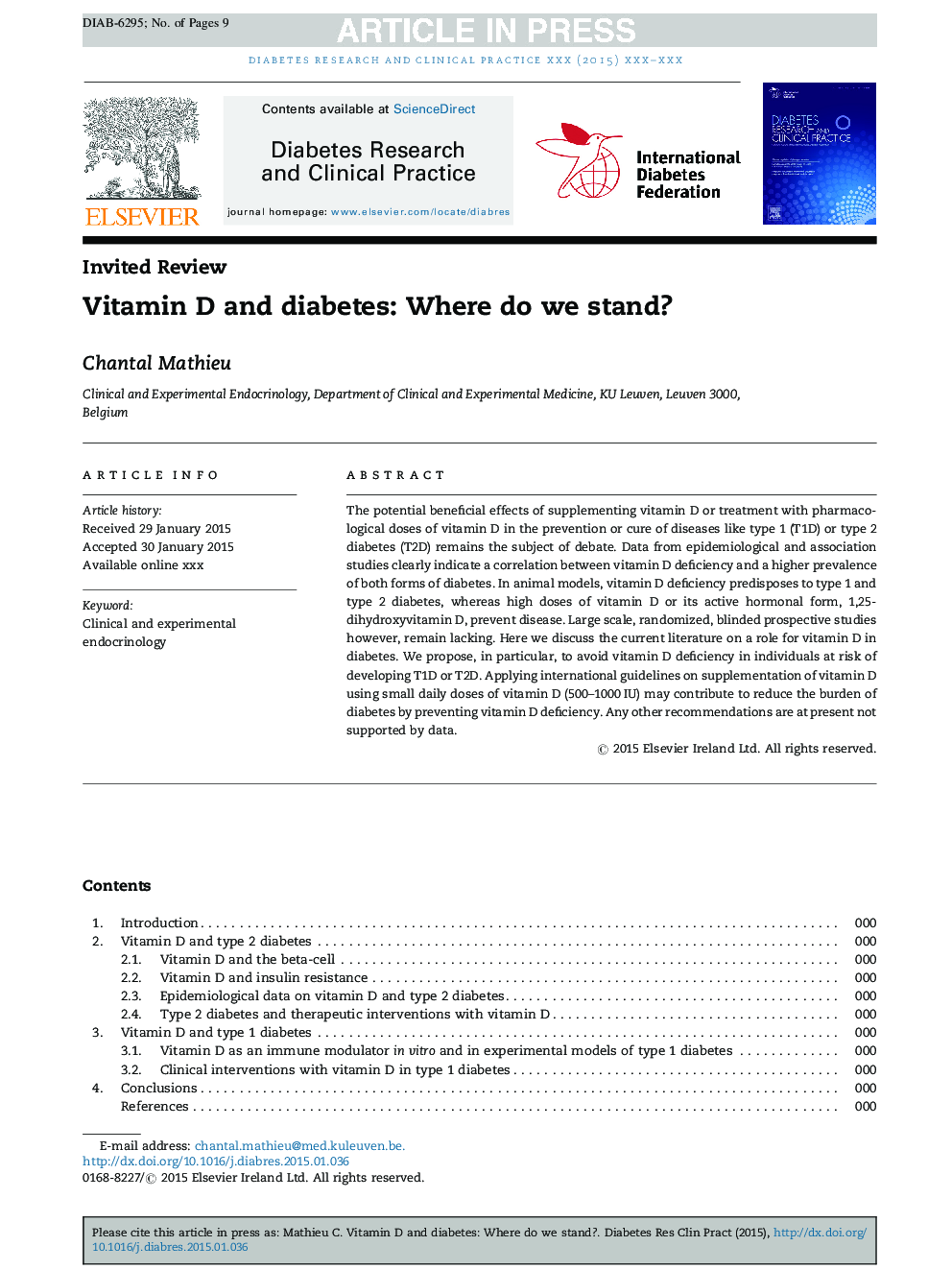| Article ID | Journal | Published Year | Pages | File Type |
|---|---|---|---|---|
| 5899457 | Diabetes Research and Clinical Practice | 2015 | 9 Pages |
Abstract
The potential beneficial effects of supplementing vitamin D or treatment with pharmacological doses of vitamin D in the prevention or cure of diseases like type 1 (T1D) or type 2 diabetes (T2D) remains the subject of debate. Data from epidemiological and association studies clearly indicate a correlation between vitamin D deficiency and a higher prevalence of both forms of diabetes. In animal models, vitamin D deficiency predisposes to type 1 and type 2 diabetes, whereas high doses of vitamin D or its active hormonal form, 1,25-dihydroxyvitamin D, prevent disease. Large scale, randomized, blinded prospective studies however, remain lacking. Here we discuss the current literature on a role for vitamin D in diabetes. We propose, in particular, to avoid vitamin D deficiency in individuals at risk of developing T1D or T2D. Applying international guidelines on supplementation of vitamin D using small daily doses of vitamin D (500-1000Â IU) may contribute to reduce the burden of diabetes by preventing vitamin D deficiency. Any other recommendations are at present not supported by data.
Related Topics
Life Sciences
Biochemistry, Genetics and Molecular Biology
Endocrinology
Authors
Chantal Mathieu,
